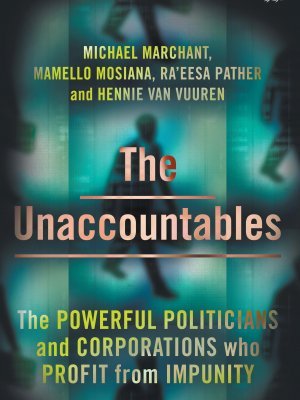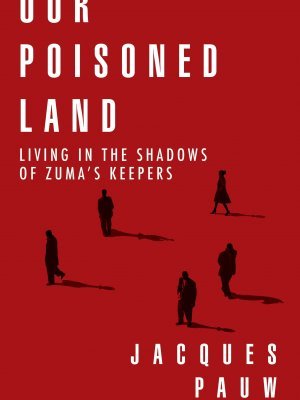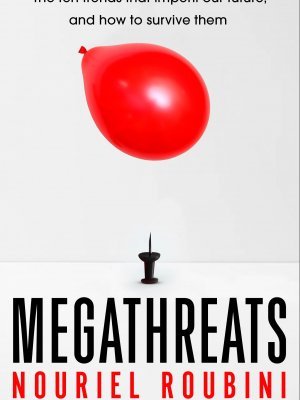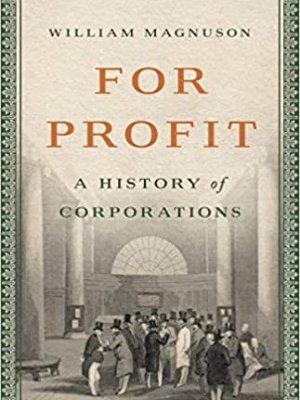Our Poisoned Land
Living in the Shadows of Zuma’s Keepers
Jacques Pauw
Tafelberg – R300
In Our Poisoned Land, veteran investigative journalist Jacques Pauw picks up where he left off with his best-selling The President’s Keepers. The latter exposed the mayhem of the Zuma years: the corruption, thievery and moral bankruptcy that led to the flight of the Guptas, state capture and the Nugent and Zondo Commissions. The coming to power in 2018 of Zuma’s deputy, Cyril Ramaphosa, was supposed to have put a stop to all that, so it’s deeply disturbing to realise that the big clean-up has left piles of dirt still festering in many critical parts of our society.
Since the publication of The President’s Keepers five years ago there have been any number of similar exposés by other investigative writers and Pauw draws on their work extensively, giving full credit as he does so. He also produces his own fresh research and insight into a number of already well-known subjects, such as the relationship between tobacco smuggler and tax evader Adriano Mazzotti and EFF leader Julius Malema. Pauw produces clear evidence that Mazzotti has been funding Malema personally along with his political party. Juxtaposed with meticulous investigation by Daily Maverick’s Pauli van Wyk into the flows of cash from looted VBS Bank to Malema, his sidekick Floyd Shivambu and the EFF, Pauw asks a simple question: how is it that neither Malema nor Shivambu have been arrested and charged with fraud and corruption?
This is the central paradox that underpins the whole book. How is it that nearly five years after Ramaphosa came to power, so many of the central characters of the state capture years are still walking free? How is that so many are still in the employ of the state? For example, how could Ramaphosa have shuffled tainted spy boss Arthur Fraser into the top job at Correctional Services? That decision came back to bite him twice, first when Fraser released former president Jacob Zuma on medical parole and then when he laid criminal charges against the President over the cash-in-sofa affair. Far from being led away in handcuffs, so many of Zuma’s arch-facilitators have been handed soft jobs, including cushy ambassadorships.
If you haven’t read any of the many other investigations, Our Poisoned Land is a very handy compendium of the many severe problems still facing South Africa. Pauw deals in depth with the Passenger Rail Agency of South Africa (Prasa) and Lucky Montana, as well as the South African Revenue Service (Sars), the Guptas and the SAPS/Hawks/State Security/Crime Intelligence nexus. He chooses to ignore Eskom, but in this context, and given the scope of the power utility’s problems, that’s no oversight.
Where the book is deficient, however, is in the amount of attention paid to Cyril Ramaphosa himself. His promise of great change has turned out to be hollow, many of his decisions are just plain strange, while others are obfuscatory. He rarely, if ever, holds a news conference; in many respects, when it comes to dealing with this vast list of corrupt officials and crooks, Ramaphosa is simply absent. That absence hangs like fog over Our Poisoned Land. With his re-election at the end of last year as ANC president, perhaps things will change? We have to hope so because, if not, the poison which Jacques Pauw describes so eloquently will seep ever deeper into the soul of our nation.
For Profit
A History of Corporations
William Magnuson
Basic Books (John Murray) – R405
What a useful and interesting book this is! Just as the title implies, William Magnuson, a professor at Texas A&M Law School and former Washington Post journalist, has set out a highly readable yet erudite overview of the development of corporations – the firm, if you prefer – from Roman times to the present day. He does this by focusing on eight key developments: Rome’s societates publicanorum, the money lenders, tax collectors and tax farmers essential to the functioning of the Roman state; the Medici Bank in 15th-century Florence; the East India Company in England in the 17th and 18th centuries; the birth of the transcontinental railroad in 19th century America and, towards the end of that epoch, the emergence of both Henry Ford’s assembly line and the giant Standard Oil Company, which later became Exxon. Finally, Magnuson dissects the corporate raider Kohlberg Kravis Roberts (KKR) and the start-up Facebook.
A central question linking each section is: when is a corporation ever a force for the good? Also, why did each one of these corporations or institutions fail or, in Facebook’s case, begin to decay? It’s striking that almost all were founded with the benefit of society in mind, yet, in their success, almost all were overtaken by greed and corruption.
Magnuson concludes with a list of eight recommendations designed to allow modern corporations to continue to deliver the benefits of which these often massively powerful organisations are capable, but to avoid the excesses to which so many fall prey. It’s good, sound advice, if a little trite: Don’t destroy the planet; treat your workers right, and so on – but I suspect human nature being what it is, future generations will ignore it, just like their ancestors did.
Don’t let that detract, though. This is a most valuable read, especially for anyone at the start of a career inside a corporation.
The Unaccountables
The Powerful Politicians and Corporations Who Profit from Impunity
Michael Marchant, Mamello Mosiana, Ra’eesa Pather and Henni van Vuuren
Jacana – R280
A very different of view corporations, and one that links directly to Jacques Pauw’s Our Poisoned Land, is found in The Unaccountables. It’s the work of the team at Open Secrets, a non-profit organisation that investigates economic crime and human rights abuses. In essence, it’s a catalogue of the companies, many of them multinationals and household names, that have profited from the excesses wrought by so many for so long on the people of South Africa.
No list of this nature would be complete unless it began with the bankrolling of the National Party and apartheid. Step forward Sanlam, Barlow Rand and Shoprite, along with the likes of PG Glass, Tedelex, Macsteel and Altron. One major beneficiary was Naspers, which the authors describe as the ‘tap root’ of the National Party. Given its dominant position on the JSE through its investment in Tencent, China’s largest internet company, it’s also probably the ‘tap root’ for many of our pensions!
We navigate through the arms deal – former president Jacob Zuma and French arms dealer Thales take the stage, along with former SANDF general Siphiwe Nyanda and BAE (then British Aerospace) – and move into what might loosely be called the modern world. Here we find – still – Jacob Zuma, but alongside him are the Guptas, and waiting in the wings, Lucky Montana, Prasa and Roy Moodley. All of the Big Four financial services firms make an appearance, along with Nedbank and Standard Bank, and as you might expect, consultancies McKinsey, Bain & Co., and the Boston Consulting Group.
It's a long list, too long to recap in full here, and many of their offences are well known if only as a result of the Zondo Commission. But assembled in this chapter-and-verse fashion, one astonishing fact stands out: not a single one of these companies or people have been found guilty of an offence by a South African court of law.
It would seem that not only are they unaccountable, as this book suggests, but they also remain untouchable.
Megathreats
Nouriel Roubini
John Murray – R405
You may have heard the expression “music to slit your wrists by”. In other words, music so dark, depressing and daunting that it points you in one direction only. Mahler trends to have that effect on me, but until I read Nouriel Roubini’s Megathreats, I had never come across it in book form before.
Roubini is Emeritus Professor of Economics at New York University’s Stern School of Business but perhaps better known as ‘Dr. Doom’, the man who so presciently forecast the great financial crisis of 2008. As he describes it, from early 2006, he looked around, observed a vast number of ridiculous home loans – sub-prime mortgages – allied to increasingly devious and obscure financial derivatives, noted that they were producing a housing bubble of epic proportions and stated that, like all bubbles, it would very shortly burst.
Well, he’s at it again, but this time on a much grander scale. Roubini analyses not just one, but ten megathreats, which threaten not only the existence of society as we know it, but also the end of much of human civilisation and even, dare I say it, the existence of the human race.
No prizes for guessing that climate change and global warming is top of his list, but add to that the global debt mountain, stagflation, aging populations, currency meltdowns, the end of globalisation and the rise of artificial intelligence (AI), to say nothing of the new Cold War between the US and China, the Russian invasion of Ukraine, unfettered migration from collapsing economies, surging populism and autocracy and new, unforeseen pandemics.
Each one of those alone is scary enough and potentially super-destructive but Roubini’s thesis is that most of them are already heading towards us at an alarming speed; not one but all are likely to hit more or less at the same time, with cataclysmic consequences.
He does not claim infallibility, but his analysis of each of the megathreats is compellingly logical, drawing on facts that are as clearly observable as sub-prime mortgages back in the day. Is the earth suffering from more and more extreme climate events? Yes. Is the amount of public and private debt in the world growing or shrinking? It’s growing. Will China’s Xi Jinping back down over Taiwan? Almost certainly not. Is populism on the rise? Well, Brexit and the election of Donald Trump have both already happened. And so on.
Roubini pulls his forecasts together into two scenarios at the end of the book. One he calls ‘dark destiny’, the other a ‘more “Utopian” future’. In the former, all the lights go out at once, and impoverished humanity, wracked by scorching storms and food shortages caused by drought, is left either in the grip of people like Vladimir Putin or the clutches of mind-controlling super-computers whose AI has out-thought us.
In the second, we all pull together, get a grip on global finances, eradicate inequality and use some of that AI to help achieve these seemingly impossible ends. Is that likely? Well, in fairness, he points out that AI has already cracked one of the great problems – protein folding – that had baffled human scientists for more than 50 years. This, he says, will lead to significant bio-medical breakthroughs. So, yes, the potential is there.
Which way does Roubini himself jump? Spoiler alert: I think I’ll go and listen to some Mahler; I need it to cheer me up.








